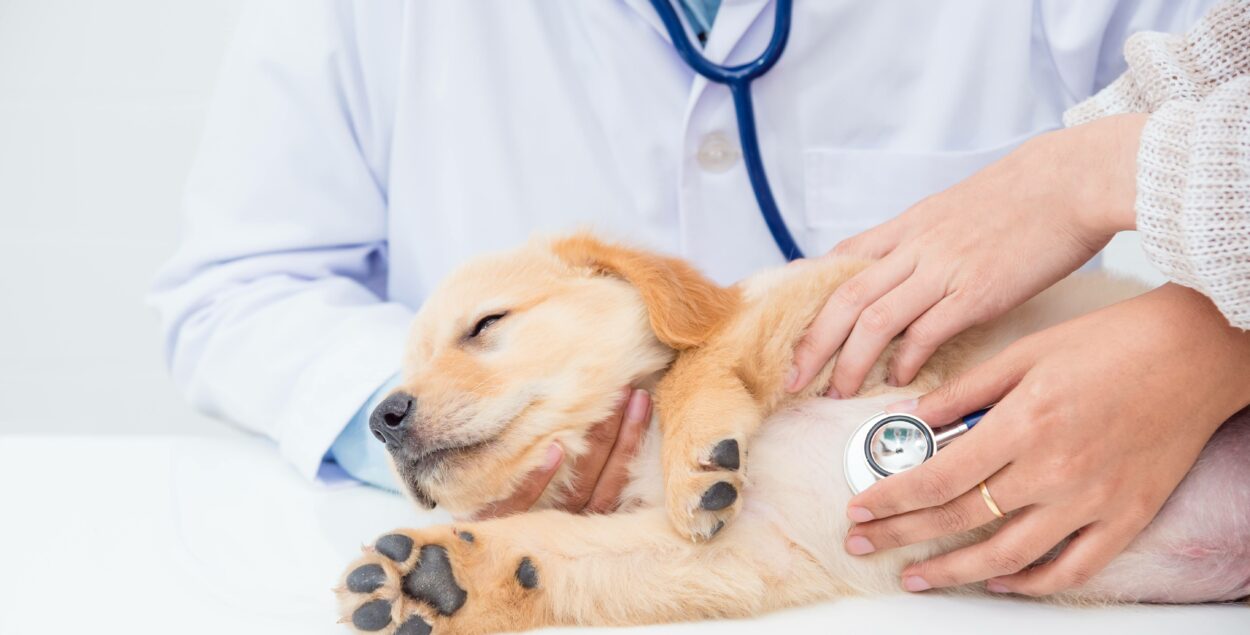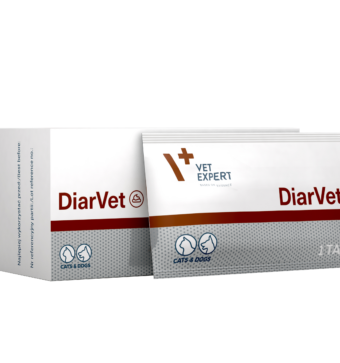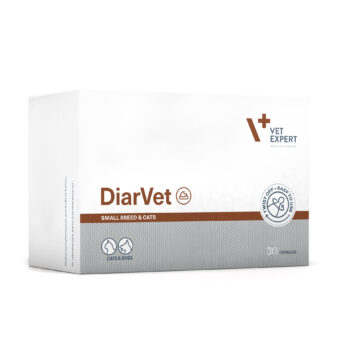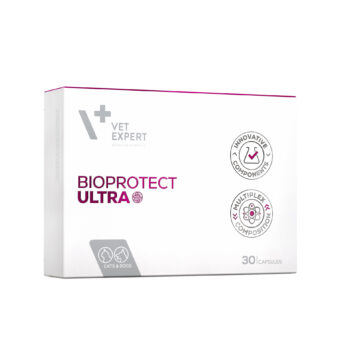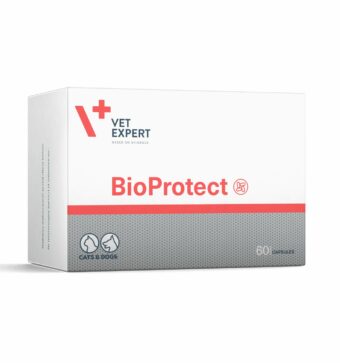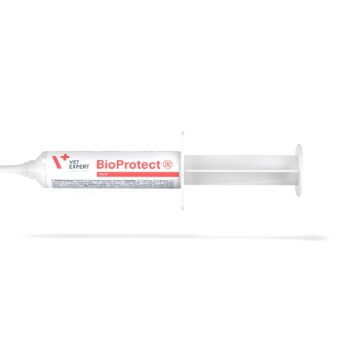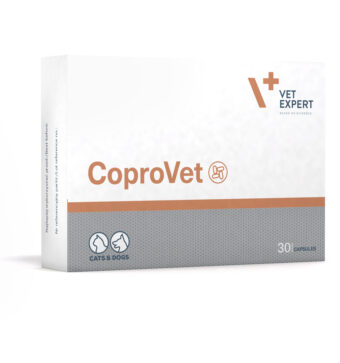Your pet’s healthy intestinal microflora is responsible for the proper functioning of the digestive tract. It also affects the proper functioning of the immune system, i.e., it is also important in terms of animal immunity.
The digestive system of dogs and cats
The digestive system of dogs and cats is inhabited by a large number of aerobic and anaerobic bacteria. They are distributed along their entire length, from the mouth to the colon, forming the intestinal microflora. Their numbers change throughout the life of the animal.
The intestinal microflora can be divided into three types of bacteria that should remain in symbiosis with each other:
- beneficial bacteria which inhibit the growth of potentially pathogenic bacteria
- potentially pathogenic bacteria which, as a result of an unfavourable stimulus, may harm the animal’s organism
- pathogenic bacteria that harm the animal’s body
Too many pathogenic bacteria compared to the number of beneficial bacteria cause disturbances in the balance of the intestinal microflora.
Imbalances in the intestinal microflora have a huge impact on the proper functioning of the digestive tract, the absorption of nutrients and, consequently, on the proper nutritional status of the whole organism.
What are dog probiotics and how do they work?
Probiotics are living, beneficial bacteria that have a beneficial effect on the animal’s body. Probiotic bacteria colonize the intestines, which reduces the growth of potentially pathogenic bacteria. In this way, they support the balance of the intestinal microflora, which is necessary for the proper functioning of the digestive tract and – as recent studies show – also for the efficient functioning of the immune system.
The most common probiotics used in dogs and cats are bacteria:
- Lactobacillus acidophilus
- Lactobacillus casei
- Enterococcus faecium
What are the most important functions of probiotics?
As it is commonly known, probiotics should be used while taking antibiotics. However, due to their digestive system-regulating properties and influence on immunity, the spectrum of probiotic applications is much wider. Probiotics are assumed to:
- support digestion and absorption of nutrients
- stimulate intestinal peristalsis and support the regeneration of the intestinal epithelium
- regulate fermentation processes, inhibiting gas formation (flatulence/bloating), and preventing diarrhea
- strengthen the animal’s intestinal immunity
Probiotics and prebiotics – what’s the difference?
Prebiotics are carbohydrates that feed probiotic bacteria. Thanks to this, they additionally stimulate the growth of beneficial bacteria in the body of dogs and cats, and thus – non-specific immunity of the body. The most common prebiotics are fructooligosaccharides (FOS) and mannan oligosaccharides (MOS). Both regulate the digestive tract and are fermented in the large intestine.
When a probiotic for a dog and a cat should be given?
Remember that the administration of probiotics is of great importance and can help your pet not only during antibiotic therapy.
- The use of probiotics supports the animal’s body in the most common digestive problems, such as: bloating, diarrhoea, gas, constipation in the dog
- The beneficial effects of probiotics can also be noticed in the case of allergies or food intolerances
- The administration of probiotics is recommended when deworming a puppy, kitten or adult animal and changing the pet’s diet
- Probiotics have a beneficial effect on immunity and should be administered in periods of increased risk of infection
Ms Sylwia, the carer of a three-year-old female French bulldog about administering a probiotic:
“Since I started giving Mindi the probiotic, the problems with excessive gas and bloating are over. I can see that my female dog is more joyful and she stopped being a fussy eater. It is possible to pour the contents of a capsule onto the food, which is very convenient to administer and does not change the taste of the food in any way.”
Human Probiotic for Dogs?
We are not entirely sure whether the human probiotic given to dogs or cats will fulfil its role properly, because its effectiveness is tested in humans and not in animals.
In domestic animals, it is worth using preparations containing specific strains of probiotic bacteria, registered for animals.
We can then be sure that such a probiotic will help stabilize the intestinal microflora.
Probiotic or synbiotic?
The answer is simple: a synbiotic is nothing more than a probiotic combined with a prebiotic. This solution provides optimal support for the intestinal microflora and supports its faster regeneration.
Therefore, for your dog or cat, use a preparation intended for use for animals, which contains both probiotic bacteria and prebiotics supporting them. An example of such a preparation is BioProtect by Vet Expert.
Features of the perfect probiotic for your pet
- Good products, including probiotics, contain ingredients with scientifically proven effects, composed in such a way that they give the best effect together – pay attention to the combination of probiotic bacteria and prebiotics in one preparation
- Choose a preparation that you can be sure has been developed by specialists who have knowledge and experience in animal nutrition – this is a guarantee of its effectiveness
- It is important that the preparation is easy to administer and tasty – choosing one, you will be sure that your pet will accept it with pleasure
- It is trusted and readily recommended by veterinarians
The opinion of your veterinarian is important – follow it when looking for a good probiotic for your pet. By giving your dog or cat a good probiotic, you can be sure that you will best support their digestive system, and your pet will be healthy and joyful. Ask your veterinarian about such a product.
